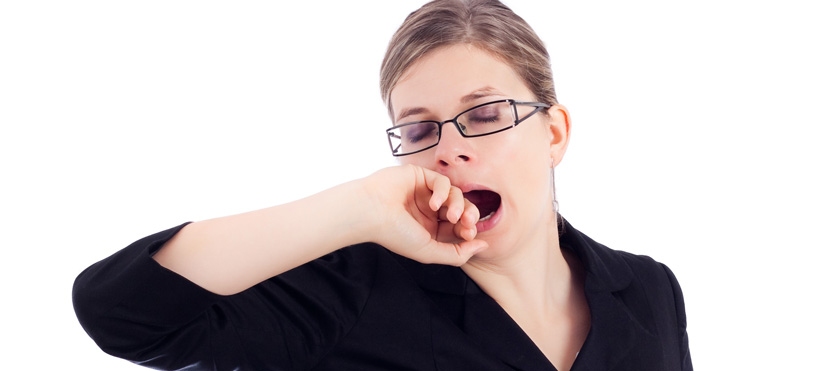 Sleep is a behavioural state characterized by little physical activity and almost no awareness of the outside world. A new health online survey, from the seven Emirates using different social media platforms like Facebook, Twitter and LinkedIn showed an alarming 70-75 per cent of UAE youngsters are not getting sufficient daily sleep. The use of more prospective measures, such as a sleep/work/health diary, and/or objective means of documenting sleep behaviors, such as actigraphy recording, may help elucidate these preliminary observations.
Sleep is a behavioural state characterized by little physical activity and almost no awareness of the outside world. A new health online survey, from the seven Emirates using different social media platforms like Facebook, Twitter and LinkedIn showed an alarming 70-75 per cent of UAE youngsters are not getting sufficient daily sleep. The use of more prospective measures, such as a sleep/work/health diary, and/or objective means of documenting sleep behaviors, such as actigraphy recording, may help elucidate these preliminary observations.
- WHAT IS THE IMPORTANCE OF CIRCADIAN RHYTHM.? AND IN YOUR EXPERIENCE, DO PEOPLE PAY ENOUGH ATTENTION TO IT..?
The term circadian comes from the Latin circa, meaning “around” (or “approximately”), and diēm, meaning “day”. In a strict sense, circadian rhythms are endogenously generated, although they can be modulated by external cues such as sunlight and temperature.
Circadian rhythms are important in determining the sleeping and feeding patterns of all animals, including human beings.
There are clear patterns of brain wave activity, hormone production, cell regeneration and other biological activities linked to this daily cycle.
Despite its biological necessity, people pay less attention to sleep and it has been traded off in modern societies to accommodate social and work schedules. Many studies have shown that sleep disturbance and poor sleep quality have adverse physiological consequences of increasing human morbidity and mortality.
Timing of medical treatment in coordination with the body clock, chronotherapeutics, may significantly increase efficacy and reduce drug toxicity or adverse reactions.
A number of studies have concluded that a short period of sleep during the day, a power-nap, does not have any measurable effect on normal circadian rhythms but can decrease stress and improve productivity.
Health problems can result from a disturbance to the circadian rhythm. Circadian rhythms also play a part in the reticular activating system, which is crucial for maintaining a state of consciousness. A reversal in the sleep–wake cycle may be a sign or complication of uremia, azotemia or acute renal failure. Studies have also shown that light has a direct effect on human health because of the way it influences the circadian rhythms.
- ARE THERE ANY STUDIES TO SHOW THAT PEOPLE WHO LIVE IN TALL BUILDING SLEEP POORLY…?
Over the past 30 years, research into environmental noise and sleep has focused on different situations and environments, and therefore the findings are variable. During sleep, the influences of minor vibration intrusion and infrasound affect the quality of sleep is experienced. However, it still seems necessary for some fundamental questions to be answered on whether environmental noise has long-term detrimental effects on health and quality of life and, if so, what these effects are for night-time, noise-exposed populations.
Sleep Tips
Here are 10 things to help you get a good night’s sleep
- Have and stick to a regular bedtime and wake-up schedule
Try to go to bed and get up about the same time each night and morning. - Make sure the time that you set for your bedtime, is a time in which you are sleepy.
Do not go to bed too soon or you may have trouble falling asleep or your sleep may be restless. - Do not nap
Napping can disrupt normal sleep cycles. Try skipping your nap and see if your regular sleep patterns improve. - Make your bedroom a “quiet” room
Do not watch television in your bedroom. Use it for sleeping or quiet reading. - Establish relaxing before-bed routines
Take a bath, a glass of warn milk, or do some light reading before bedtime. - Develop relaxation techniques
Learn yoga, deep breathing, quiet meditation or listen to soft music while trying to fall asleep. - Avoid troubling news right before bed.
Violence in newspapers or on television may bother some people making it difficult to fall asleep. Try reading a book instead. - Avoid stimulants.
Do not use stimulants or drink things that contain caffeine(tea, coffee, cola etc.) 6 hours before bedtime. - Do not use alcohol or tobacco products close to bedtime.
Use of these products may calm you at the time of use, but they can have disrupting effects on your sleep during the night. - Exercise regularly.
Regular activity helps the body and mind healthy, but be sure to avoid vigorous exercise right before bedtime.
Dr.Wasim Raja Qasim,
Specialist Internal Medicine,
Thumbay Hospital Daycare, Rolla
For appointments contact us through
Phone: +971 6 5440555
Email: thdaycare.shj@thumbayhospital.ae
Online: www.appointments.thumbay.net
Location: Thumbay Hospital Daycare, Sharjah (Rolla), Opposite to Rolla Mall, Sharjah United Arab Emirates
